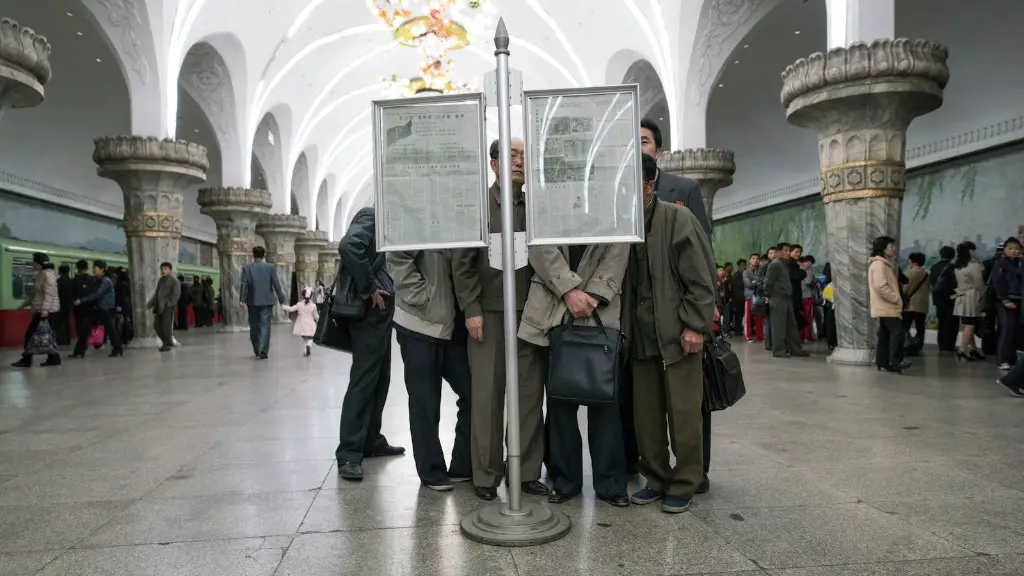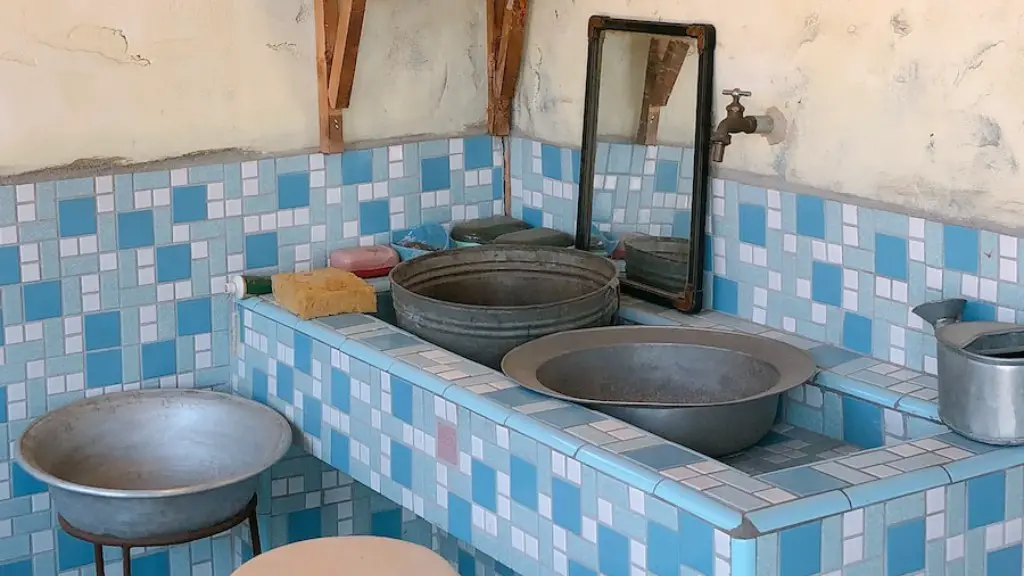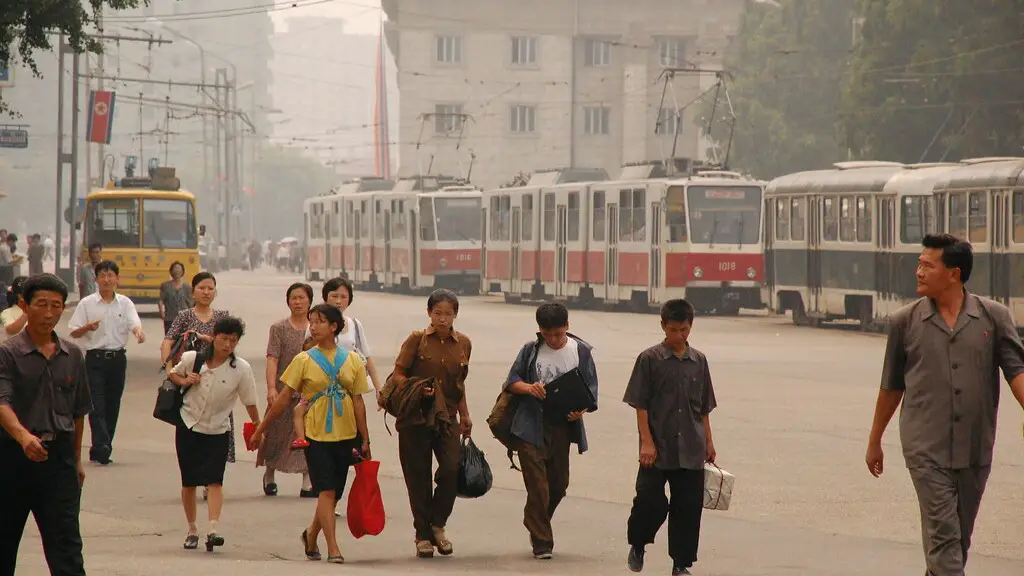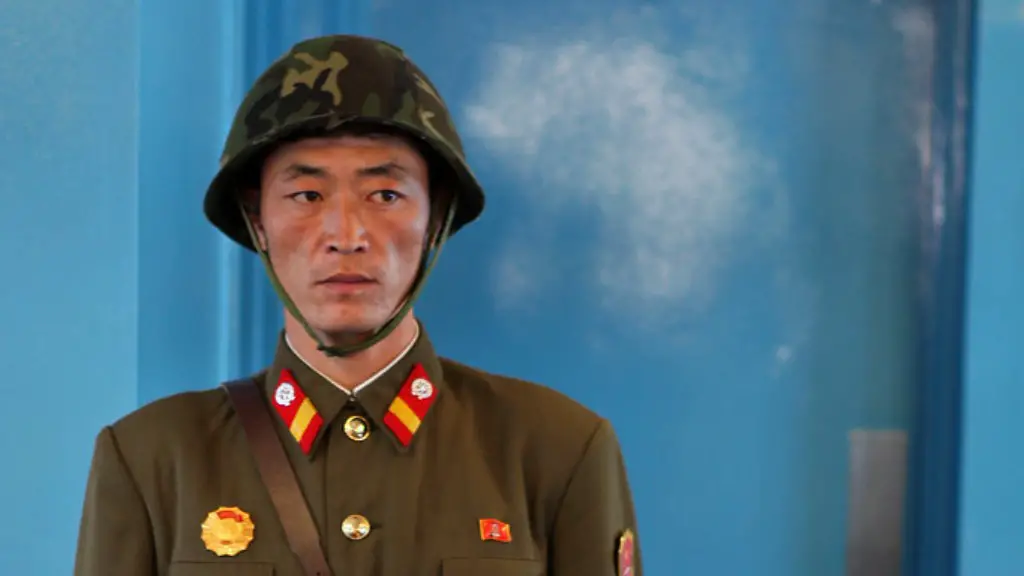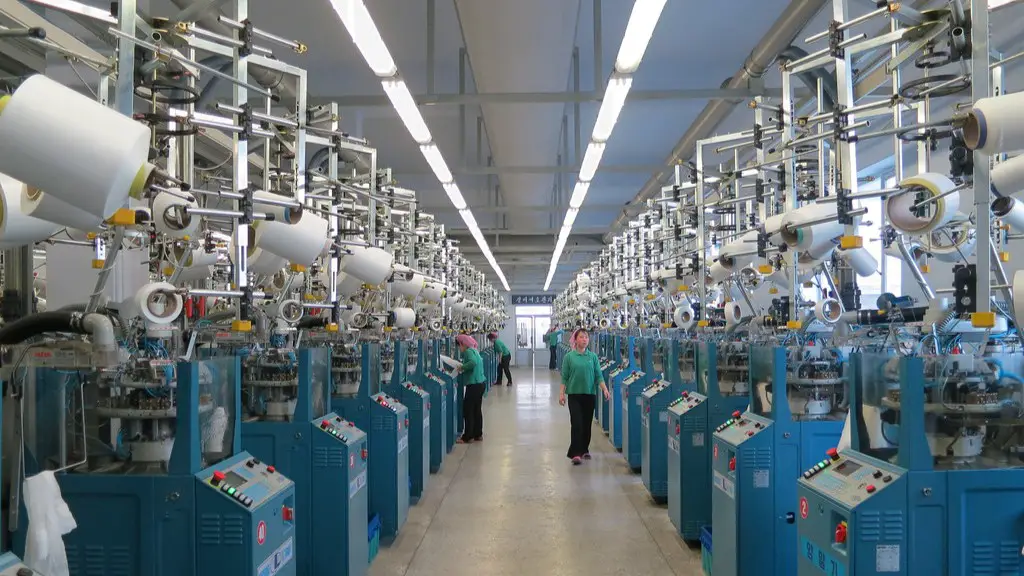What It’s Like to Live In North Korea
It is no secret that the Democratic People’s Republic of Korea (DPRK), more commonly known as North Korea, is one of the least-free nations in the world. It is a place where citizens are denied basic rights, and it is a place where living conditions are harsh. For those living in North Korea, life is one of oppression and deprivation.
The people of North Korea have few individual rights or freedoms. According to the Human Rights Watch, those who express opposing views of the government are harshly punished and often subjected to torture. In addition, the government has complete control of the media, meaning that citizens are often exposed to biased and inaccurate information that is intended to bolster the North Korean regime.
The living conditions in North Korea are dire. According to the United Nations, as many as 18 million North Korean citizens are in urgent need of food aid. There have also been reports of widespread malnutrition. Indeed, the United Nations estimates that about one-third of North Korean children are malnourished. In addition, the lack of basic medical care means that preventable and manageable health problems can often turn into life-threatening illnesses.
The economic situation in North Korea is dire, as well. The nation’s economy is heavily reliant on foreign aid, and according to a report by the United Nations, around two-thirds of the population is living in poverty. It is also estimated that the country has a staggering $25 billion in unpaid foreign debt.
There is no doubt that life in North Korea is difficult for its citizens. Dr. Stephen Haggard of the Peterson Institute for International Economics has said that the country is in “a severe humanitarian crisis” and “in need of urgent attention.” He further noted that the “enforced isolation of the North Korean people has produced a devastating level of human suffering.”
Impact of Sanctions on North Korean People
The US-led sanctions imposed on North Korea have been a major source of hardship for the nation’s citizens. According to the United Nations, the sanctions have “adversely affected” the lives of North Koreans, “as have other states’ measures that have hindered access to essential goods and services.”
Sanctions have made it increasingly difficult for North Koreans to access basic goods and services, including food, health care, fuel, and medicines. This has resulted in widespread shortages and price hikes, putting essential commodities out of reach for many North Koreans.
The sanctions have also disrupted trade between North Korea and its neighbors, resulting in a further deterioration of living conditions. This, in turn, has led to a decrease in the purchasing power of North Korean citizens, thus making it even harder for them to meet their basic needs and sustain their livelihoods.
The sanctions have also had an adverse impact on North Korea’s economy. According to the UN, the sanctions have “reduced North Korea’s access to international financial markets and state actors.” This has made it increasingly difficult for the government to raise revenues and meet its debt payments, leading to an increase in poverty and inequality within the country.
The economic suffering of North Koreans has been exacerbated by the country’s lack of access to international financial institutions and foreign investment. This has had a devastating effect on the nation’s economy, resulting in further shortages and price increases, along with an even greater strain on the already struggling North Korean people.
Life for North Korean Women
For North Korean women, life is especially difficult. A report by the United Nations Human Rights Council notes that North Korean women face a number of challenges, including discrimination and abuse, lack of access to education and job opportunities, and lack of adequate medical care.
Women in North Korea are often treated as second-class citizens and are often denied basic rights that are taken for granted in other countries. They are also often subjected to gender-based violence, including rape and physical abuse. In addition, North Korean women lack access to education and job opportunities, leaving them unable to improve their economic standing and financial security.
Moreover, North Korean women lack access to basic health care, resulting in a number of preventable and manageable health issues. According to the UN, North Korean women are more likely to suffer from poverty and malnutrition and are thus at greater risk of maternal mortality.
In general, life in North Korea is difficult and oppressive for its citizens, but the situation is particularly dire for women. As the UN notes, “women and girls in the DPRK are some of the most disadvantaged and vulnerable individuals in the country.”
Human Rights Violations
North Korea is also notorious for its human rights violations. A report by the UN Commission of Inquiry in 2014 detailed the various human rights violations that are perpetrated by the North Korean government, including torture, arbitrary detention, and public executions.
North Koreans are also often denied the right to freedom of expression and the right to access information. According to the Committee to Protect Journalists, North Koreans are “subject to arbitrary arrest, long-term imprisonment, and torture for attempting to exercise their right to freedom of expression.” These violations of human rights are often perpetrated with impunity.
The human rights situation in North Korea has led to widespread condemnation from the international community. In 2018, the UN General Assembly voted overwhelmingly to refer North Korea to the International Criminal Court for human rights abuses. The Secretary-General of the UN has also called for North Korea to end its “oppressive practices” and to “respect the fundamental human rights of its people.”
In addition, several countries have imposed their own sanctions on North Korea, targeting key figures within the government. The US government, for example, has imposed sanctions on several North Korean entities for their alleged involvement in the country’s human rights abuses.
North Korean Citizens In Exile
Republic of Korea (ROK), more commonly known as South Korea has provided refuge to over 30,000 North Korean defectors since 2000. The journey to South Korea can be extremely dangerous; therefore, many seekers find themselves in debt after paying hefty sums of money to brokers and smugglers to help them escape the repressive borders of DPRK. The journey often involves a trek to China and then to a third country (preferably in Southeast Asia) before they arrive in the South.
Upon their arrival to the ROK, the defector population is forced to confront a multitude of difficult challenges. For example, United Nations High Commissioner for Refugees (UNHRC) reported in 2017 that many returnees experience language barriers, economic instability, cultural shocks, legal problems, and social exclusion. This leaves North Korean exiles with a heightened sense of marginalization as they experience disparities between their abilities and the abilities of native South Koreans.
The government of the ROK in response to such difficulties has implemented measures to make the entry process less burdensome for North Korean citizens. This includes providing free education and vocational training, along with a monthly stipend and housing aid that alleviates the financial burden of transition.
Furthermore, the government of South Korea has prepared legislation that facilitate smoother transition for those who wish to relocate. The Amendment to the Nationality Act in 2006 gave new freedom to North Korea defectors to acquire South Korean citizenship. This ultimately eases the process of transitioning, allowing more defectors the chance to begin anew in a different country.
Education in North Korea
Education in North Korea is compulsory and free. The country has a literacy rate of over 99%. It has a rigorous education system which puts a large emphasis on rote learning but which has been criticized for its lack of fostering creativity and critical thinking. The curriculum at North Korean schools is heavily influenced by the government and focuses on the country’s leader, Kim Jong Un. However, because of the lack of resources, North Korean schools often have inadequate facilities, outdated teaching materials, and a lack of qualified teachers.
In addition, North Korean schools also lack access to technology. This means that students are limited in their access to information from the outside world and do not have the same level of exposure to different ideas and perspectives as students in other countries. As a result, North Korean students are at a disadvantage when it comes to global knowledge and understanding of the world.
Moreover, there is also a lack of freedom in the North Korean education system. Schools heavily discourage independent thinking and criticism of the government, and students are instead encouraged to be loyal to the Kim regime. According to Human Rights Watch, teachers in North Korea are required to report any comment or action they believe to be critical of the government, and students who do not conform to the government’s worldview may face punishment.
Overall, the education system in North Korea has been criticized for its lack of freedom and its emphasis on rote learning. Despite the government’s efforts to provide equal access to education, the lack of resources, technology, and freedom in North Korean schools means that students are being deprived of a quality education.
Air Quality and Environmental Impacts
North Korea’s air quality and environment are both in peril. The country is known for its high levels of air pollution, with its Carbon Dioxide emissions being among the highest in the world. According to The World Bank, North Korea’s air pollution levels have reached dangerous levels, with certain pollutants reaching levels that are up to five times higher than the World Health Organization (WHO) limits. This has led to an increase in health problems and illnesses as a result of prolonged exposure to air pollution.
Furthermore, the environment in North Korea has been negatively impacted by the nation’s lack of proper waste management. This has led to a significant amount of water and air pollution, with sewage and hazardous waste often being dumped into rivers and lakes without proper treatment. This has caused a severe lack of access to clean water and air in North Korea, leading to increased health problems among the population.
In addition, the country’s reliance on coal burning for energy has caused significant environmental damage. This has led to deforestation and an increase in carbon emissions, as well as greater levels of air pollution. Moreover, it is estimated that due to the state of the environment, North Koreans are four times more likely to be exposed to air pollution than people living in South Korea.
Overall, North Korea’s air quality and environment are in a precarious state. This has led to a significant decline in the health of citizens and has had dire consequences for the country’s well-being. It is clear that the North Korean government must take action to protect the country’s environment and improve the health and well-being of its citizens.
